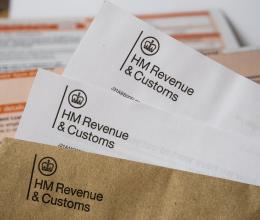The growth of the digital economy has been a game changer. It has created new markets, seen a global economy develop and caused significant issues for revenue authorities as well as businesses who struggle to comply when trying to be innovative or trying to achieve a global reach.
Taxing the platforms
It has been widely reported that the Italian courts have made an order against Airbnb of €780m for alleged tax evasion, in respect of the years 2017-2021. The Italian government plans to raise the rental tax rate to 26% which will cause further issues for Airbnb.
The issues of VAT accounting for online taxi apps are well established, with significant settlements and ongoing litigation, most recently in favour of one platform. Some jurisdictions blocked trade due to concerns about the tax arrangements.
Online market places (OMP) have been subjected to new regulations, making it easier to account for taxes, both for the vendor and authorities. However, the impact on OMPs has been less favourable, introducing additional obligations.
Reporting obligations are extended
In 2024, new checks are on the horizon for side hustles, including businesses that may or may not be solely pursued as a hobby. Reporting obligations will be extended to authorities, including HMRC joining data sharing with the Organisation for Economic Co-operation and Development (OECD).
These measures complement the existing requirements on OMPs and the changes to goods being imported into the UK when their value falls below £135.
Observations
There is no doubt the authorities need a solution to tax, as there are and always have been gaps. The central issue lies with between the platform and the supplier - who should be accountable for tax, and in what jurisdiction.
Get it wrong and the numbers can be significant, with penalties added on top. Plus, professional representation – fees in excess of £m for professional advice in an uncertain and high tax risk area are not uncommon.
What about the users of the platform? Are they effectively managing their tax responsibilities, and are they doing so in the appropriate jurisdiction? Consider this scenario: if you are offering a digital product to a customer in Mexico, most likely you need to register for tax accounting in Mexico, even if you have no establishment or place of belonging there.
This will only get more complex and controlled, likely accompanied by delays. This presents an ongoing risk for businesses, particularly if they are prone to errors in navigating these complexities.
There is a global effort from the authorities to share information. This is evidenced by the 2024 OECD changes and the sharing of information by tax authorities.
Summary
It is essential for this economy to evolve, and authorities must tax it to generate revenue and to avoid distortions of competition. In addition, businesses need to be compliant and most of them strive to align with regulations. While it may feel like experiencing growing pains, which can be challenging, but it can be managed. At no point should tax become an obstacle for businesses; that would defeat the whole object of the system. Addressing this issue requires a focus on governance and exercising reasonable care.
The next step
If you require any support with the above, please contact Sean Glancy or Zehra Osman, our tax experts. Alternatively, please can contact your usual UHY adviser.




